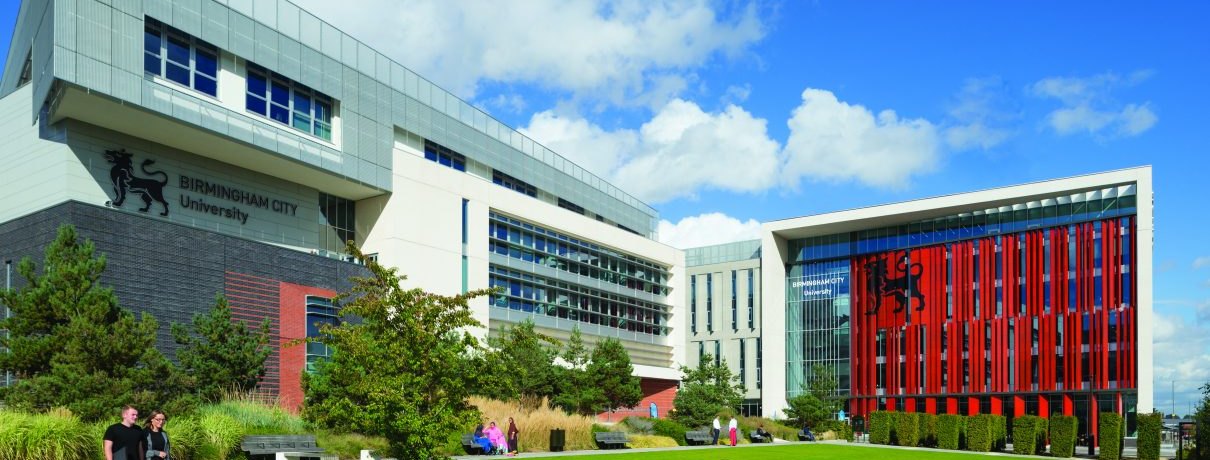Four new PGRs share their research plans
March’s BCMCR event saw four of our brilliant new PGRs share their plans for their doctoral research. Having just completed their PG Certificate in Research Practice course, they’re now starting their research. With subjects ranging across Queer studies, dating apps, gaming culture, Goan arts festivals and the work of Jeff Lynne, the presentations demonstrated the breadth and depth of PhD research at BCMCR.
Kicking off was Andrew Bell, introducing his project examining the queering of the monster in video games. While referencing a number of existing texts around queer emergent play and provocations to game makers to move beyond one dimensional representation of queer people, and using the lens of queer and cultural studies, Andrew’s fascinating research will use experimental game making to explore how monsters function as cultural artefacts. Their work will interrogate what game design might look like if it were oriented towards queering, and testing if current models of best practice would still function in this context. As an example, Andrew explained how his practice-based research will unpick the conventional binary of an active player versus a fixed monster which is constrained in its movements and capabilities. Rather than advancement through vanquishing the monster, what if the player had to be defeated by it? Andrew’s research, as well as challenging conventions, will be stretching player experience through reimagining monsters. Watch out!
Next up we heard from Uttaran Das Gupta. Having already done field research at the Serendipity Arts Festival in Panaji, India, Uttaran is now extending this study by examining how the festival generates art, culture and placemaking in Panaji, and also (new for this year) at its Birmingham sister festival. After describing the range of arts and culture platformed at the festival, including visual art, music, food, photography and theatre, Uttaran’s research will seek to articulate how the festival’s corporate funding influences curatorial choices, whether the festival acts as an elite space which marginalises and excludes some people from its audience or stages (particularly in relation to caste and politics). This project is not only interesting in building knowledge in the field of cultural studies, but also timely as the Birmingham edition of the festival will be taking place for the first time from 23 May to 1 June at our very own Royal Birmingham Conservatoire.
Although he was unable to be with us in person, Peter Newton created a video presentation that eloquently set out his project researching the musical contributions of songwriter, musician, producer and stellar contributor to the world-class heritage of the Birmingham music scene, Jeff Lynne. Even if you think you don’t know Jeff Lynne’s music, you probably do! Whether it’s Mr Blue Sky and ELO, the Traveling Wilburys or his musical imaging of War of the Worlds, his work has influence countless others and pushed the boundaries of contemporary pop. For Peter, he’s seeking to uncover how Birmingham’s music scene, with a focus on the 1960s period, contributed to and informed his sound and career. Furthermore, Peter will examine how musicological and technological choices shape the distinctiveness of a creative person’s output. Let’s hope is able to get an interview the man himself!
Finally, Lerelle Willden-Lewis talked us through her project researching the experience of marginalised, queer people’s use of dating apps. With a focus on evidencing ways marginalised queer people are discriminated against when engaging with dating platforms, Lerelle’s research will seek to articulate how this manifests structurally, culturally and interactionally. Key to her approach is the theoretical framework provided by intersectionality which enables the understanding of how structures of oppression interrelate. Using a mix of methods including a survey, interviews and an app walk-through, Lerelle’s research will offer a germane addition to academic studies across identity, discrimination, online dating culture and technology, with important outcomes which could help create new resources to improve safety and user experience, increase understanding of the queer community, develop more inclusive online spaces and influence social media technology development. In the current climate of (real and perceived) heightened discrimination against the LGBTQ+ community, this project is timely and very relevant.
We look forward to seeing how all these projects develop of the next few years.
